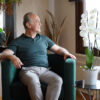
Skin aging occurs due to genetic factors and environmental reasons. Over time, cells, tissues, and organs age. The most visible signs of these aging effects occur on the skin. As individuals age, tissues in the body undergo various changes. It is not possible to stop this process or completely prevent the skin problems that develop with age, but the symptoms can be managed.
Causes of Skin Aging
There are numerous factors that cause skin aging. Certain factors accelerate the skin’s natural aging process, causing the skin to deteriorate more quickly. These factors include:
- With aging, there is a decrease in the collagen fibers produced by the body, resulting in weakened skin tissues.
- Excessive exposure to sunlight is also among the factors that accelerate skin aging. Unprotected and prolonged exposure to the sun can cause flaws such as wrinkles, sagging, and pigmentation on the skin.
- Frequent and rapid weight gain and loss can lead to skin laxity, which causes accelerated aging.
- Smoking and excessive alcohol consumption have a negative effect on the skin. Toxins found in cigarette smoke cause inflammatory reactions in the skin tissue and accelerate aging signs.
- Irregular sleep accelerates skin aging. The body rejuvenates and removes toxins during sleep, making a quality sleep routine extremely important.
- Poor dietary habits affect the quality and firmness of the skin. Especially diets high in sugar and carbohydrates are particularly impactful.
- Excessive stress causes an inflammatory condition throughout the body and accelerates aging.
- Low water intake leads to skin dryness and rapid aging
- Environmental pollution is also among the external factors that affect the quality of the skin.
How Can Skin Aging Be Delayed?
If signs of aging are detected on the skin, it is possible to control these symptoms through various methods. However, the precautions and treatments vary for each specific symptom. So, how can skin aging be prevented? Recommendations and methods to delay skin aging can be summarized as follows:
- If there is pigmentation on the skin, it is necessary to consult a specialist physician. This is because sunspots may indicate health issues and aging, among other problems. Sunscreens with at least SPF 30 should be used for these pigmentations. In addition, creams containing vitamin C, alpha-hydroxy acid, or aloe vera can be used for existing spots.
- To prevent signs of aging on the hands, it is crucial to regularly moisturize them.
- Pigmentation and signs of aging in the chest area are also related to sun exposure. Therefore, sunscreen with at least SPF 30 should be used specifically for this area.
- It is a fact that people with dry skin types age faster. Therefore, individuals with this skin type should consult a dermatologist for evaluation. Following this, it is important to moisturize the skin routinely and to consume plenty of fluids.
- Sleeping is among the preventive measures to be taken. However, care should be taken to sleep on the back instead of on the stomach, use silk pillowcases, and avoid facial expressions that cause tension in the face muscles.
Skin Tightening and Facial Cosmetic Surgeries
For those wondering “How can skin aging be stopped beyond lifestyle, nutrition, and care routines?” skin tightening and facial cosmetic surgeries can be recommended. Skin tightening and facial cosmetic surgeries are preferred to correct deformations on the face due to advancing age and to give the skin vitality. Facial aesthetics have various sub-disciplines. Here are the procedures that can be applied depending on the deformation experienced in your skin:
- Non-surgical facelift
- Facial implants
- Facial botulinum toxin application
- PRP treatment (Regenerative stem cell)
- Mini facelift
- Neck lift (Chin aesthetics)
- Brow lift
- Under-eye bag surgery
- Cheekbone fillers
- Lip fillers – lip augmentation
- Lip aesthetics
- Chin aesthetics
- Fat filling (Lipofilling)
For questions regarding skin aging, you can contact the expert team of Op. Dr. Sedat Baş in Aesthetic and Plastic Surgery.













